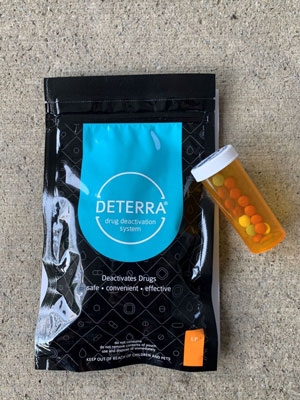Harm Reduction
Health and Wellness Education offers programs and support informed by harm reduction.
What is Harm Reduction?
Harm Reduction is an approach that engages directly with individuals who use drugs and uses their personal goals to reduce the risk associated with substance use. This may include strategies that:
- prevent overdose or the transmission of infectious diseases,
- promote physical, mental, or social well-being,
- or provide low-barrier options to accessing treatment.
Harm Reduction is a major focus in the continuum of care outlined by the Substance Abuse and Mental Health Services Administration (SAMHSA) as part of the Department of Health and Human Services’ Overdose Prevention Strategy.
Practicing Harm Reduction
Self-Assessment
Harm reduction works by being aware of what works best when personal goals and values are taken into consideration. This means, it is important to know yourself! When understanding your relationship with substances, performing a self-assessment can be useful.
CAGE Assessment
Try out a set of individual questions like the ones modeled below. Note: the examples below have been adapted to include drug use (CAGE-AID).
- Have you ever felt you should cut down on your drinking or drug use?
- Have people annoyed you by criticizing your drinking or drug use?
- Have you ever felt guilty about your drinking or drug use?
- Have you ever had a drink or used as drug as an “eye-opener” in the morning to steady your nerves or get rid of a hangover?
Read more about the CAGE Assessment on Campus Well.
Online Tools
There are many online resources that can help someone explore their relationship with substances. Be sure to always exercise judgment to find information from reputable sources. Some examples are included below:
Be an Ally
- Support friends that choose not to use drugs in social settings. Whether you have friends that are in-season athletes, in recovery, taking a tolerance break, or just choosing not to drink for the night, be a good friend and back them up if you see them facing social pressure.
- Everyone loves a good host. If providing a gathering space, make sure food and non-alcoholic drinks are available. Make them fun too! The internet is full of great ideas. Pro tip: it’s good to understand the College’s alcohol policies before agreeing to host a party.
- Look out for other party-goers. Decision making becomes impaired while using substances. Step up if you see someone in a vulnerable situation!
Resources and Support
Note: this list is not a full list of resources available.
- Make an appointment. Talk to a health educator on campus by visiting our Make an Appointment page or by emailing Health and Wellness Education..
- Visit off campus and community resources. The Turning Point Center of Addison County is conveniently located within Middlebury. VT Helplink is a state-level alcohol and drug support center.
- Contact a national resource center. The Substance Abuse and Mental Health Services Administration (SAMHSA) offers a National Helpline (1-800-662-4357).
Medication Disposal

Returning unused prescription or over-the-counter medication is a powerful way to take care of your community and create substance-free spaces. When medications that are no longer needed sit around, they are more easily accessed by people who may be experiencing addiction, considering suicide, or consumed accidentally by children or pets. Learn more about medication disposal and stop by the Health and Wellness Education Office, Health Services, or any RA Office to pick up a free medication-disposal kit.
Know that prescription and over-the-counter medication can also create problems in the environment. When medications are flushed down the toilet or dumped down the sink, they can have lasting effects on habitats around us and our water supply. Flushing medications, though seemingly innocuous, can have significant negative impacts on our water quality, health of waterways and aquatic species, and contribute to the development of antibiotic resistant bacteria, which all ultimately effect human health.
We are all interconnected. Properly disposing of medications is a great way to protect ourselves, our family, our friends, and our ecosystems. You can play a part in prevention by taking the time to properly dispose of medication you no longer need. Stop by the Health and Wellness Education Office, Health Services, or any RA Office to pick up a free medication-disposal kit.
In Case of Emergency
Call 911 for any medical, fire, police, or life-threatening emergency.
For other emergencies call Public Safety at 801-443-5911.

